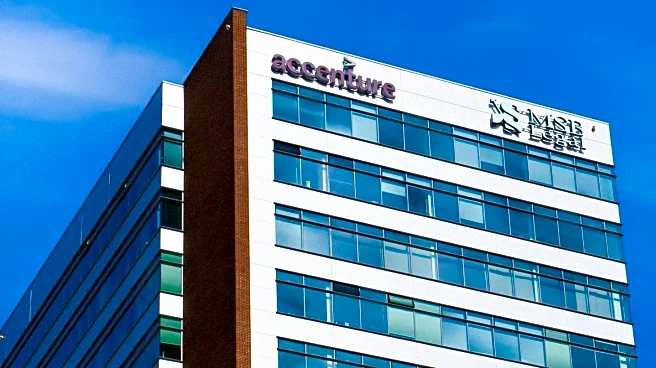What's Happening?
AN2 Therapeutics, a biopharmaceutical company, has announced a collaboration with GSK to develop new therapies for tuberculosis (TB) using boron-based LeuRS-inhibitors. This partnership is supported by the Gates Foundation, which has provided funding
for the third consecutive year. The collaboration aims to address the global health challenge posed by TB, which affects over a quarter of the world's population and results in more than 1.25 million deaths annually. AN2's boron chemistry platform is designed to create small molecule therapeutics that target novel mechanisms, offering potential breakthroughs in infectious diseases. The collaboration builds on a longstanding partnership between AN2 and GSK, focusing on the development of impactful therapeutics for TB and other diseases.
Why It's Important?
The collaboration between AN2 Therapeutics and GSK is significant as it targets tuberculosis, the world's deadliest infectious disease, with innovative approaches. The use of boron-based LeuRS-inhibitors represents a novel method in drug discovery, potentially leading to effective treatments for TB, especially in lower-income countries where the disease is most prevalent. This partnership highlights the importance of bold scientific advancements and strong collaborations in addressing global health challenges. The development of new TB treatments could significantly improve health outcomes and reduce mortality rates associated with the disease, benefiting millions worldwide.
What's Next?
The collaboration is expected to advance the development of boron-based therapeutics targeting TB, with AN2 and GSK working closely to explore the potential of these compounds. The Gates Foundation's continued support suggests ongoing research and development efforts. Future steps may include preclinical and clinical studies to evaluate the efficacy and safety of these new treatments. Success in these areas could lead to regulatory approvals and commercialization, providing new options for TB patients globally. The partnership may also inspire further collaborations in the biopharmaceutical industry, focusing on innovative solutions for infectious diseases.
Beyond the Headlines
The use of boron chemistry in drug development represents a shift from traditional carbon-based approaches, potentially leading to breakthroughs in treating not only TB but other infectious diseases and therapeutic areas. This collaboration underscores the ethical responsibility of pharmaceutical companies to address critical medical needs, particularly in underserved regions. The focus on TB treatments aligns with global health priorities, emphasizing the need for equitable access to healthcare innovations. Long-term, this partnership could influence the direction of drug discovery, encouraging more research into alternative chemical platforms and their applications.















